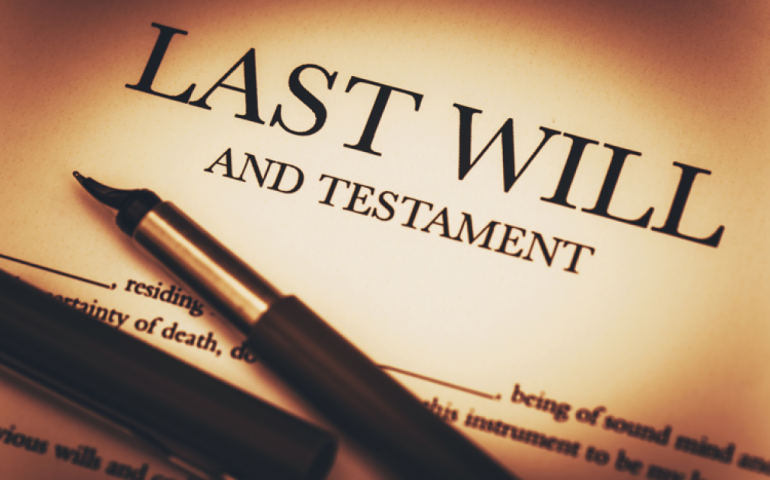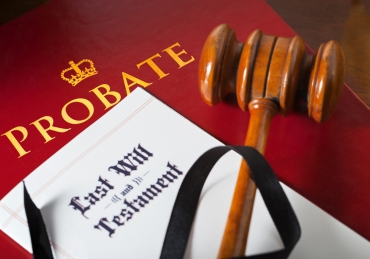Can husband stay in the Waqf property after my demise?
Question
I am in the process of making a Will and wish to include the points (1-3) below therein and would like to know if they comply with Islamic Law.
I have a house which I own and am currently living in, I have some jewellery and some savings, all of which I acquired by my own means through employment during my adult life. I have no children, but I am married and my husband too has no children of his own. I have adult siblings who are all married and settled in their own lives. They are all comfortable and require no financial support. There are no other dependents, or eligible inheritors, and I do not owe anything to anyone.
I am aware of the inheritance aspect with regards to how my ‘Estate’ would be distributed after my death, among my husband and siblings. However, I would like to bequeath the aforementioned assets before my death to charity for the reward of myself and others, post my demise, and would like to stipulate the following in my Will:
(1) During my lifetime, I will continue to live in my house, and live off my assets as required, and the remainder after expenses upon my demise to be forwarded to the stated beneficiaries within my Will.
(This would mean I will have already given away my Estate in advance, and there will be nothing to go to any inheritors or heirs, unless I change my statement during my lifetime).
(2) I would like to add that my husband may reside at my property should he wish to, until such time he passes away, or leaves of his own choice whence he will then not be able to return. He cannot sell or let any part of the property, or charge anyone else for any expenses relating to the property. He will be personally responsible for the up-keep, maintenance, and all related costs to keep the property in the excellent order as when he acquired it.
(3) Should my husband re-marry, he will vacate the property with immediate effect prior to his marriage. Thereafter, the property will be passed onto the stated purpose or charity.
The above is in relation to the house. In relation to the other assets, my husband or others would have no access to them for their or for anyone else’s personal gain.
بسم الله الرحمن الرحیم
Answer
It is permissible for a person to make all their assets or part of their assets Waqf (perpetual endowment) whilst they are alive, and it also permissible to stipulate that the house which is made Waqf will be used by the person and their spouse until both of their demise, and thereafter will be used for charitable purposes perpetually. Anything that is made Waqf in a person’s lifetime is not subject to inheritance and is not owned by the inheritors at any point. The ultimate owner is the Islamic Government or the Muslim charity to whom the asset is endowed and the ultimate beneficiaries must be the poor. Therefore, clause 1 and 2 are valid.
In relation to the third clause which states that the husband cannot reside in the Waqf property if he re-marries, this will be enforced if any such stipulation is made. As the owner, you are entitled to stipulate such conditions. However, the act of making an asset Waqf is a noble deed and marriage is also a noble deed. When a spouse passes away, one is generally encouraged to re-marry. Therefore, it is recommended that you re-consider this clause and avoid such a stipulation. You will be rewarded for this.
Finally, it should be noted that there is no limit to what a person can make Waqf during their lifetime, however, once something has been made Waqf, this is irreversible. On the other hand, if the instruction of Waqf is to take effect after death, then the laws of Waṣiyyah (bequest) will apply; the Waqf will be restricted to one third of the assets, unless the inheritors consent, and the Waṣiyyah is reversible and a person can change his mind at any point before his demise. Therefore, if you wish for all your assets to be Waqf, you need to think through this carefully as it is irreversible, and you need to make it Waqf whilst you are alive, and mention in your will that you had made all your assets Waqf during your lifetime so that it is not treated as a Waṣiyyah, a point to which you have referred to in your question.
It must also be remembered that Jewellery and money can also be made Waqf. However, once made Waqf, you can only benefit from its proceeds (for example those generated from a Waqf fund, or investment, or Shariah compliant savings account) without using the original that is endowed. If you wish to use the Jewellery and money itself until your demise, then you should not make it Waqf; however, this will then be subject to inheritance, although you will have the right to make one third of it Waqf.
١) قال الحصكفي في الدر المختار (٤/٣٣٨): (وعندهما هو حبسها على) حكم (ملك الله تعالى وصرف منفعتها على من أحب) ولو غنيا فيلزم، فلا يجوز له إبطاله ولا يورث عنه، وعليه الفتوى، ابن الكمال وابن الشحنة، انتهى. وقال ابن الهمام في فتح القدير (٦/٢٠٧): والحق ترجح قول عامة العلماء بلزومه، لأن الأحاديث والآثار متظافرة على ذلك قولا كما صح من قوله عليه الصلاة والسلام: لا يباع ولا يورث، إلى آخره، وتكرر هذا في أحاديث كثيرة واستمر عمل الأمة من الصحابة والتابعين ومن بعدهم على ذلك، انتهى. ووافقه ابن عابدين (٤/٣٣٩)، وراجع التصحيح لابن قطلوبغا (ص ٢٨٨)۔
وقال القدوري في مختصره (ص ١٢٨): وإذا جعل الوقف غلة الوقف لنفسه أو جعل الولاية إليه جاز عند أبي يوسف، انتهى. وقال المرغيناني في الهداية (٣/١٩): ولأبي يوسف ما روي أن النبي عليه الصلاة والسلام كان يأكل من صدقته، والمراد منها صدقته الموقوفة، ولا يحل الأكل منها إلا بالشرط، فدل على صحته، ولأن الوقف إزالة الملك إلى الله تعالى على وجه القربة على ما بيناه، فإذا شرط البعض أو الكل لنفسه فقد جعل ما صار مملوكا لله تعالى لنفسه لا أنه يجعل ملك نفسه لنفسه، وهذا جائز، كما إذا بنى خانا أو سقاية أو جعل أرضه مقبرة، وشرط أن ينزله أو يشرب منه أو يدفن فيه، ولأن مقصوده القربة وفي الصرف إلى نفسه ذلك، قال عليه الصلاة والسلام: نفقة الرجل على نفسه صدقة، انتهى. والفتوى على قول أبي يوسف كما في التصحيح (ص ٢٩٢) والدر المختار (٤/٣٨٤) والهندية (٢/٣٩٧) وغيرها. وقال ابن مازة في المحيط البرهاني (٦/١٢٧) ولخصه عمر بن نجيم في النهر الفائق (٣/٣١٠): لو وقف على الأغنياء لم يجز لأنه ليس بقربة، بخلاف ما لو جعل آخره للفقراء فإنه يكون قربة في الجملة، انتهى۔
٢) وقال ابن نجيم في البحر الرائق (٥/٢٦٦): ومنها ما في قاضي خان: لو وقف على أمهات أولاده وشرط عدم تزوجهن كان الشرط صحيحا. فعلى هذا لو شرط في حق الصوفية بالمدرسة عدم التزوج كما بالمدرسة الشيخونية بالقاهرة اعتبر شرطه، انتهى. وقال في الهندية (٢/٣٧٣): ولو قال: وقفت على من يسلم من ولدي أو على من يتزوج من ولدي، يدخل فيه كل من أسلم وتزوج بعد الوقف لا من كان مسلما أو متزوجا يوم الوقف، كذا في محيط السرخسي، انتهى۔
٣) وقال السمرقندي في تحفة الفقهاء (٣/٣٧٦): أما إذا وقف في حال حياته وأوصى بذلك بعد وفاته فإنه يجوز بلا خلاف لكن ينظر إن خرج من الثلث يجوز في الكل، وإن لم يخرج من الثلث يجوز الوقف فيه بقدر الثلث ويبقى الباقي إلى أن يظهر له مال آخر أو يجيزه الورثة، فإن لم يظهر له مال ولم يجز الورثة تقسم الغلة بينهم أثلاثا الثلث للوقف والثلثان بين الورثة على قدر أنصبائهم، وإن أجازه الورثة يصير جائزا ويتأبد الوقف بحيث لا يبطل بعد ذلك، انتهى۔
وقال الحصكفي في الدر المختار (٤/٣٤٤): إذا مت فقد وقفت داري على كذا فالصحيح أنه كوصية تلزم من الثلث بالموت لا قبله. قلت: ولو لوارثه، انتهى. قال ابن عابدين: أي يلزم من الثلث ولو كان وقفا على وارثه، انتهى. وقال المرغيناني في الهداية: أما في تعليقه بالموت فالصحيح أنه لا يزول ملكه إلا أنه تصدق بمنافعه مؤبدا فيصير بمنزلة الوصية بالمنافع مؤبدا فيلزم. قال ابن الهمام في فتح القدير (٦/٢٠٨) وابن نجيم في البحر الرائق (٥/٢٠٨): له أن يرجع قبل موته كسائر الوصايا، وإنما يلزم بعد موته، انتهى۔
٤) قال الحصكفي في الدر المختار (٤/٣٦٣): (و) كما صح أيضا وقف كل (منقول) قصدا (فيه تعامل) للناس (كفأس وقدوم) بل (ودراهم ودنانير) قلت: بل ورد الأمر للقضاة بالحكم به كما في معروضات المفتي أبي السعود ومكيل وموزون فيباع ويدفع ثمنه مضاربة أو بضاعة، فعلى هذا لو وقف كرا على شرط أن يقرضه لمن لا بذر له ليزرعه لنفسه، فإذا أدرك أخذ مقداره ثم أقرضه لغيره وهكذا جاز، خلاصة، وفيها: وقف بقرة على أن ما خرج من لبنها أو سمنها للفقراء إن اعتادوا ذلك رجوت أن يجوز، انتهى۔
Allah knows best
Yusuf Shabbir
27 Jumādā al-Ūlā 1442 / 12 January 2021
Approved by: Mufti Shabbir Ahmed and Mufti Muhammad Tahir





